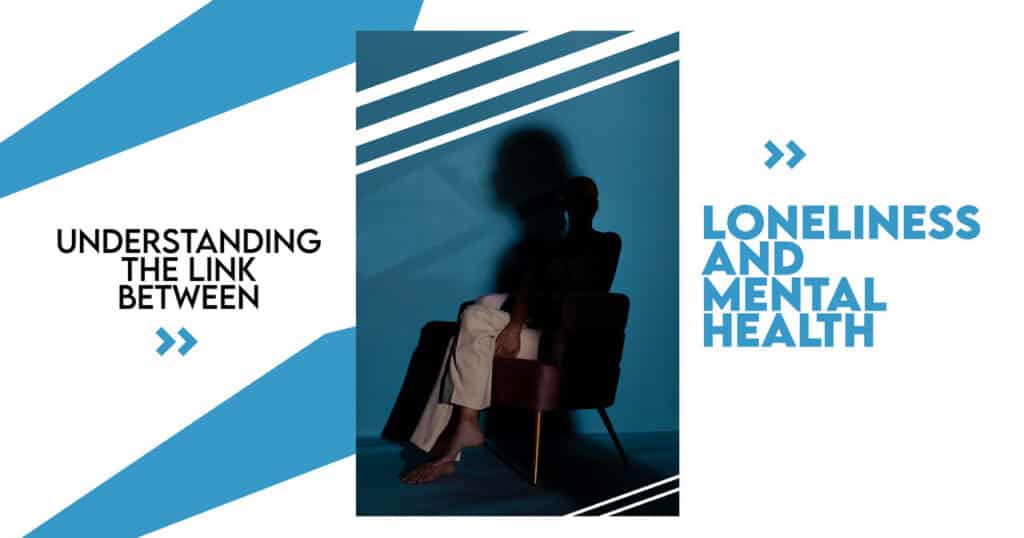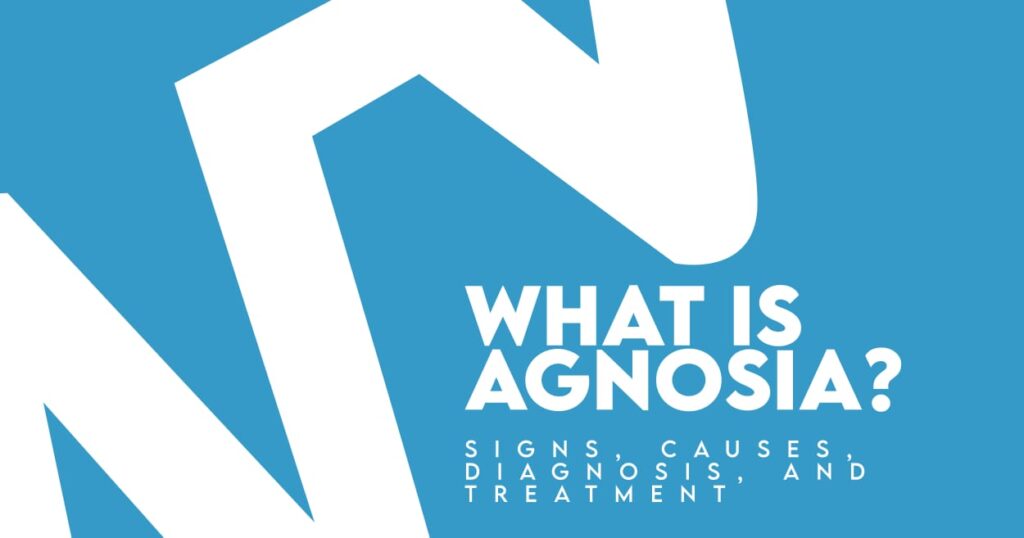While there is nothing wrong with having a bit of “me time” or even feeling dejected after a break-up or dismissal from work, a persistent feeling of loneliness can be a dangerous thing. If the lack of human contact is not your conscious decision and you suffer from being alone – with people around you in some cases – it is possible you struggle with loneliness and are at risk of developing mental health issues.
In our guide we are going to show you the link between loneliness and mental health, explain how loneliness influences your daily activities, specify the symptoms of loneliness that are rarely discussed, and show you the ways to get rid of the overwhelming state of isolation to build a happier future for yourself.
How Loneliness and Mental Health Are Connected
There is evidence that points to the connection between mental health and social isolation – if an individual does not have anyone to talk to for a significant amount of time, this may lead to all sorts of issues, from psychological consequences to physical ailments. The relationship between these two notions also works in the opposite direction – for instance, a person that exhibits the signs of depression often tends to socialize less and less further harming their mental well-being.
The Physical Effects of Loneliness
When you feel lonely for a prolonged period of time, it may harm your physical health – not everybody knows that people who want human contact but lack it often develop physical symptoms caused by isolation.
| Physical Effect | Description |
| Diabetes | If you are spending a lot of time on your own, not exercising, and relying on take-out and fast food, it is likely you will develop type 2 diabetes |
| Cardiovascular Diseases | From high blood pressure to heart failure – lonely people are at a higher risk for heart diseases. These complications are prevalent among older individuals that fail to visit a doctor and do not have anyone in their lives to check up on them |
| Dementia | It is crucial to stay mentally active and keep your connection to family, friends, and colleagues to reduce the risk of dementia; compared to people that have company, lonely people have an increased chance to have dementia in the long run |
Common Mental Health Disorders Linked to Loneliness
From minor mental health issues to disorders only a professional therapist can identify – unfortunately, the impact of loneliness on mental health can be so severe that it increases stress and causes numerous problems for a secluded person.
| Mental Health Disorder | Description |
| Anxiety | Whether your fear of being alone comes from abandonment issues or you are simply distressed because you have no one to talk to daily, the feeling of agitation and nervousness can sadly become one of the negative consequences of your solitude |
| Low Self-Esteem | Many individuals lose their confidence in addition to feeling alone – this is particularly noticeable in people who had to face some kind of rejection whether they were fired or a potential partner turned down their advances |
| Sleep Disturbances | Too much sleep or not enough – both of these issues are common for people that do not have someone to talk to. Try fixing your sleep routine and see if you feel better and less nervous about your current state |
| Depression | If you withdraw from social life for any reason, your unwanted solitude may escalate into a mental disorder. Upon receiving this diagnosis from a mental health professional, you should start treating your symptoms to avoid further progression of the illness |
The Cycle of Loneliness and Mental Health Challenges
It is hard to break free from the cycle: you feel depressed, you do not remain in contact with other people, and you become isolated – just like isolation inevitably leads to numbness, sadness, and helplessness.
People are frequently triggered by negative events in their lives that make them want to be alone – for example, if you experienced great personal loss, your initial reaction may be the desire to avoid all communication and remain silent and isolated for as long as possible. Yet you can continue to grieve and take care of yourself at the same time – do not allow your sadness to overcome you, do not bury yourself in your solitude, keep going and reach out to other people for support and understanding.
Ways to Combat Loneliness and Support Mental Health
Effects of loneliness on emotional well-being are plenty – here are a few suggestions we advise you to consider if your loneliness makes you unhappy:
| Advice | Description |
| Make new acquaintances | Sometimes a person can feel lonely even surrounded by friends, classmates, or colleagues – why not try something new and meet people you share a lot with? Think of an activity you like and find others who will have fun with you whether you like going to museums or swimming |
| Discover how to enjoy your own company | Believe it or not but many people would envy your solitude – this is a perfect time to invest in yourself, pick up a new hobby, and become a better version of yourself. Even when you are alone, you can make self-care a priority and stay physically and mentally active |
| Give a chance to therapy | Whether you opt for individual sessions with a therapist or try group therapy where you can open up to people who struggle with similar issues, it is a great idea to devote a couple of hours each week to your mental well-being |
The Role of Community and Social Support
One of the main reasons a person feels lonely is their lack of social connections that have real meaning. Occasionally, you may find yourself all alone in the world even if you continue talking to other people and engaging in social activities. Your community – be it a group of close friends, your study group, workplace, or extended family – might seem distant and unfamiliar, especially if you feel the symptoms of depression forming in your mind.
Do not despair – interact with other people, be honest about your feelings and admit to them (after you admit it to yourself!) that you feel rather alone from time to time, and take a break whenever communication with others brings you grief instead of joy.
How to Seek Help If You’re Struggling With Loneliness
You already made the first step – you acknowledge your struggle with solitude. Here are a few strategies that will help you reach out to others:
- While your goal may be to make positive changes to your own life, reducing loneliness to improve mental health is possible when you volunteer to help others. You will be able to meet other people whether you are working part-time in a homeless shelter or feeding a local colony of cats – any act of kindness will make you feel useful and needed.
- Find like-minded individuals online. The Internet can be a wonderful tool for people who cannot leave their houses for some reason – you can connect with others through a computer or phone screen. Moreover, there are certain activities that have become virtual over the last few years – you can even take a vacation or recreate a visit to a tourist attraction sending a virtual invite to your online friends to join you.
- Do not be ashamed of therapy. For some people it can be difficult to contact a complete stranger and want to talk freely about things that bother them – but keep in mind that you can do therapy in secret, no one has to know what tools you are using to treat your loneliness. Additionally, lately many platforms started offering therapy via chats – you can access mental health assistance without the need to show your face to a therapist.
Breaking the Isolation for a Healthier Mind
As long as you recognize the presence of a problem, you are on the right track. Coming out of your comfort zone may be a difficult obstacle to overcome especially if you isolated yourself for a long time and you are wondering if your old friends will be happy to see you or asking yourself if your social skills became too rusty for you to ever enjoy the company of another person. Yet progress is possible no matter how long you have been alone or felt alone – look for a therapist equipped to help you, build new deep relationships in your community, and visualize a better future for a new you.
FAQs
- Can you feel lonely surrounded by other people?
Yes, sometimes a person will feel alone even when they are constantly spending time with other people – their partner, children, extended family, friends, and coworkers. The presence of others often exacerbates the feeling of isolation, and the individual may even develop anxiety and experience burnout.
- Is loneliness inherently bad?
If you enjoy spending time in your own company, there is nothing wrong about that, however, if you go days and weeks without having meaningful conversations with people who care about you and are willing to hear you out and listen to your frustrations, it may lead to numerous negative consequences.
- Can loneliness impact my mental and physical health?
There are multiple issues prolonged solitude can cause – from panic attacks to stress, from high blood pressure to memory problems. Communication with others is key. A person who lacks in this aspect of life is at risk of developing a health condition or two.
- How do I cope with feeling isolated?
Whether you are fighting alone, reaching out to friends, or searching for a therapist for a more professional approach, there are endless ways to resolve this issue. You can challenge yourself to go out more and socialize, pick up healthy habits and exciting hobbies, and find pleasure in being alone unbothered by the outside world.
- Do I need a therapist if I feel lonely?
More and more people discover that therapy can be beneficial when they are unable to handle their loneliness on their own. A licensed therapist can show you harmful patterns in your behavior and give you the support you require, even if you end up having only a few sessions.








